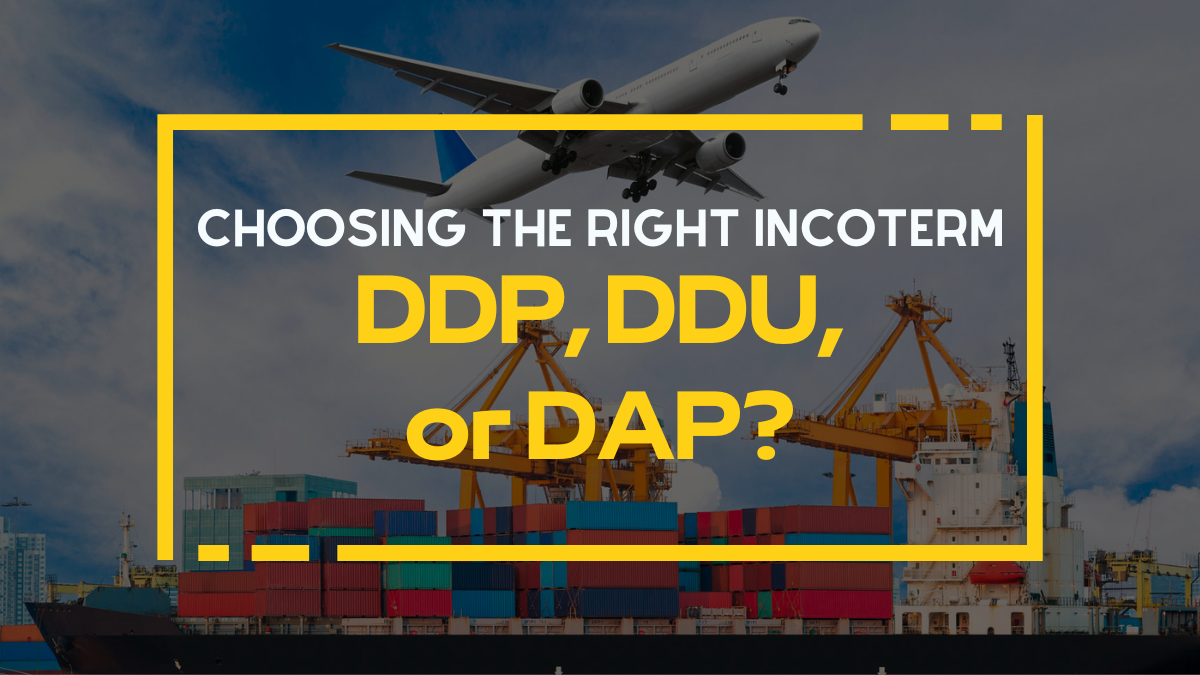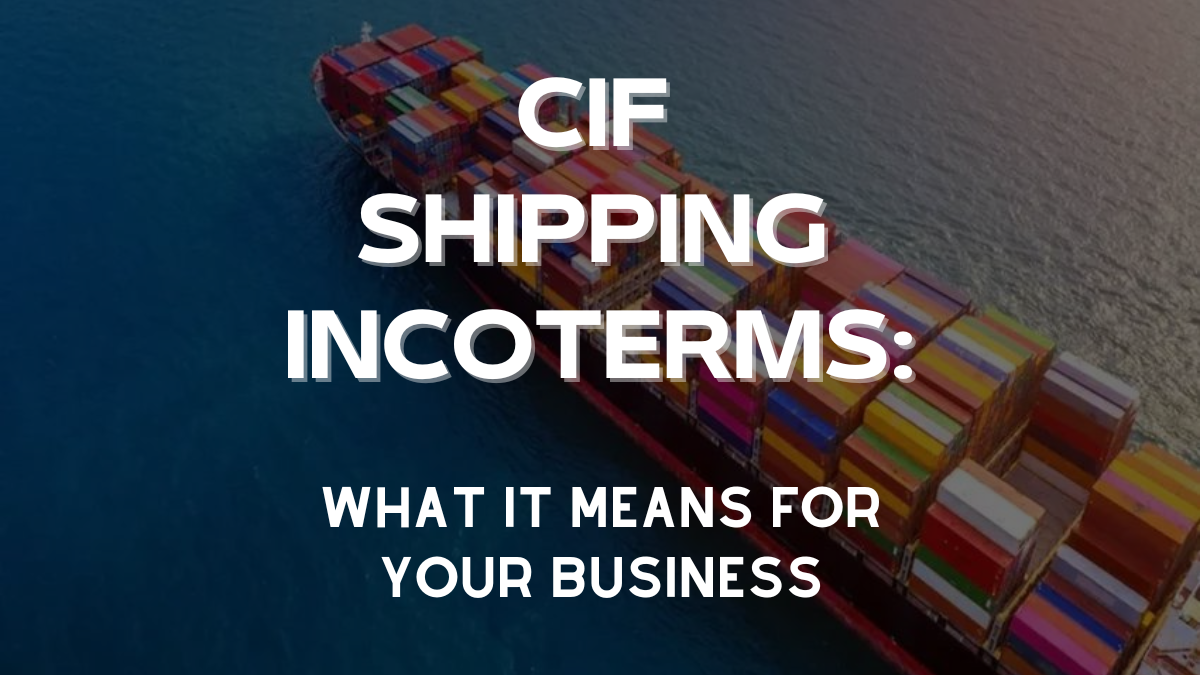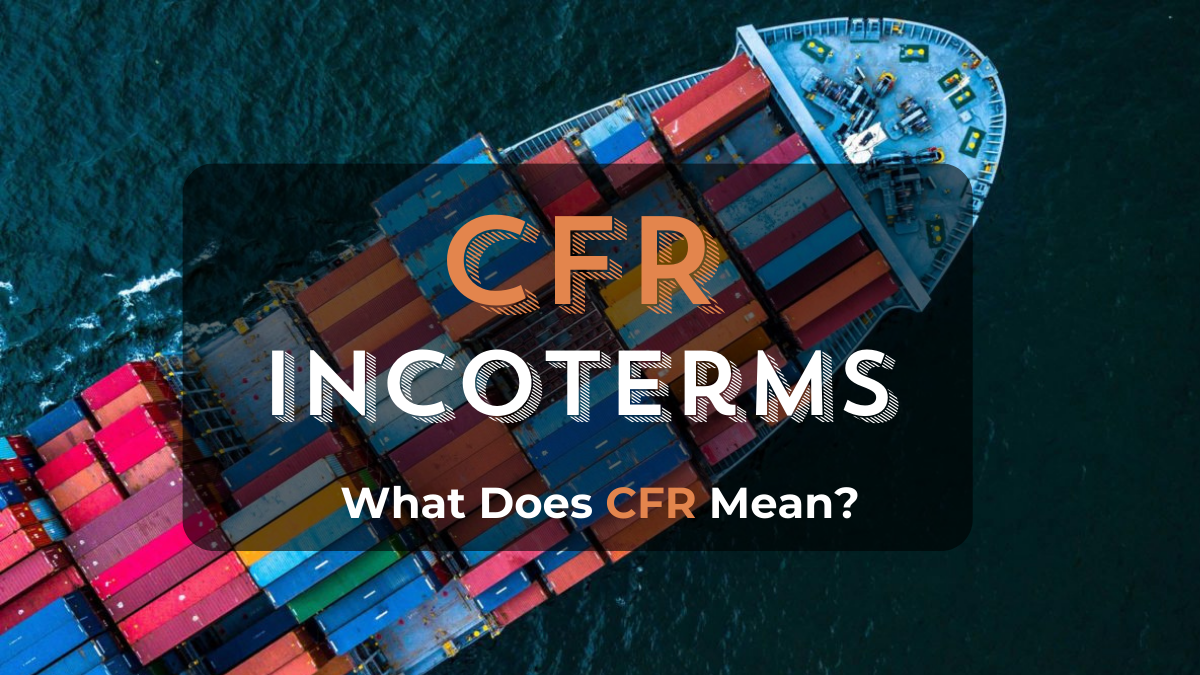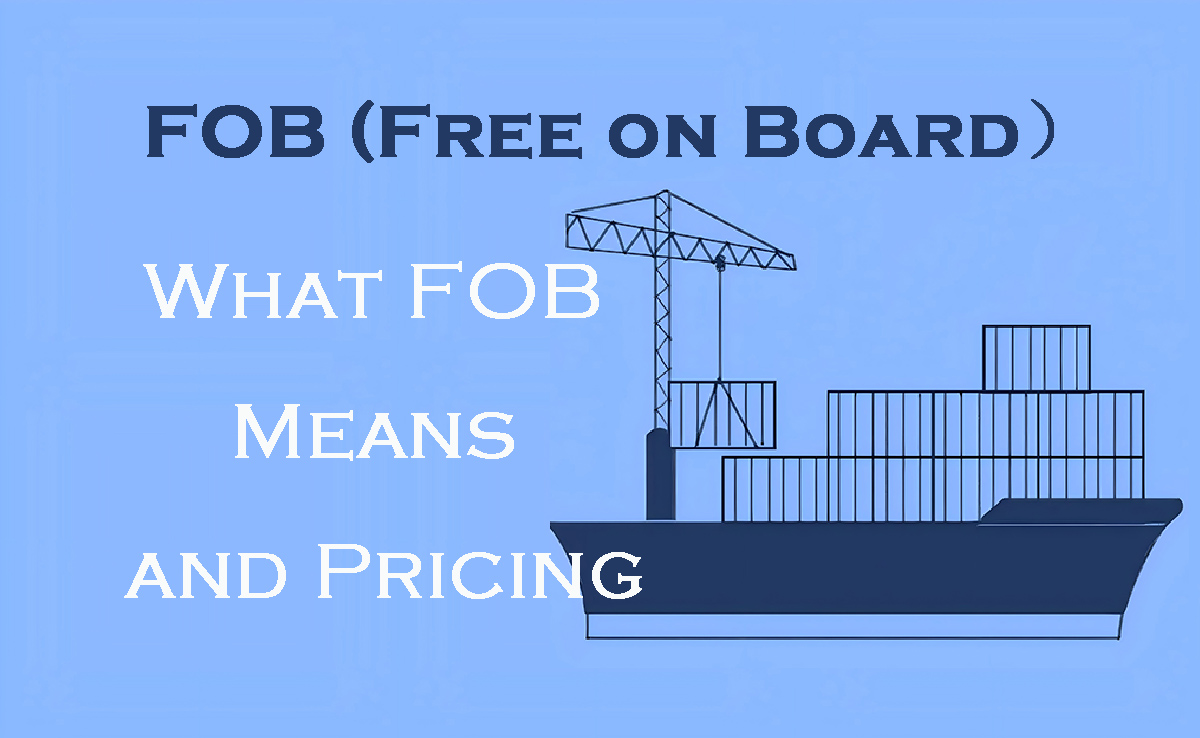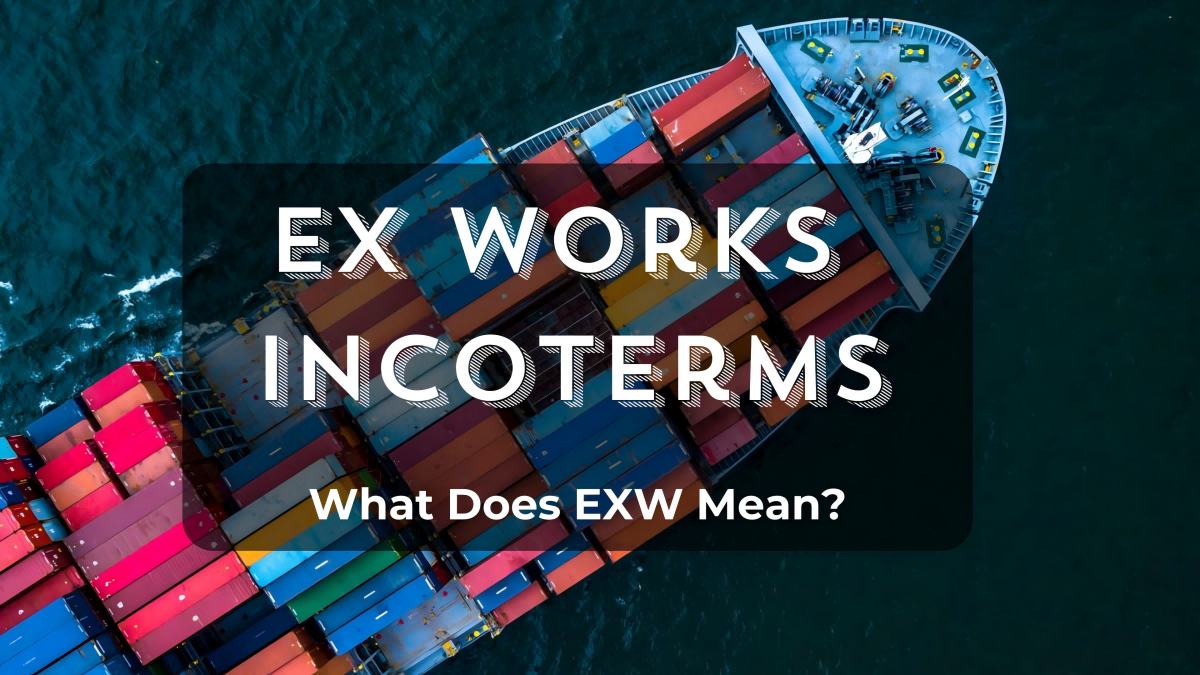I. What is EX Works (EXW) in International Trade?
EX Works (EXW) is one of the Incoterms (International Commercial Terms) defined by the International Chamber of Commerce (ICC). This term indicates that the seller has fulfilled their obligation once the goods are made available at their premises or another named place such as a factory or warehouse. Essentially, the seller’s responsibility ends at their doorstep.
Under EXW, the buyer takes on a significant portion of the logistics and risks. This includes arranging transportation, handling export and import duties, and covering all related costs. The seller is only required to provide the goods and a commercial invoice, while the buyer must manage the rest of the journey.
EXW is often used when the buyer has more logistical capabilities or prefers to handle the shipping arrangements themselves

II. What Are the Key Features of EXW?
What Responsibilities Does the Seller Have?
Under EXW, the seller’s responsibilities are minimal:
- Make the goods available at their premises or another agreed location.
- Ensure the goods are suitably packaged for export.
- Provide the buyer with the necessary documents to take possession of the goods.
What Responsibilities Does the Buyer Assume?
The buyer assumes all responsibilities and costs once the goods are made available by the seller:
- Loading the goods onto the transport vehicle.
- Transporting the goods to the port of origin.
- Handling all export duties, taxes, and customs clearance.
- Paying all freight charges and insurance.
- Managing the importation process and delivery to the final destination.

III. What Are the Advantages of Using EXW?
For sellers, EXW is simple and beneficial. One of the primary advantages of EX Works for sellers is its simplicity. Sellers have minimal responsibilities, significantly reducing their risk and administrative burden. They do not need to worry about transportation logistics or export documentation beyond making the goods available at their premises.
For buyers, EX Works can be cost-effective. Since the buyer arranges the transportation, they have the flexibility to choose their preferred logistics providers and potentially negotiate better rates for transportation and insurance. This control allows buyers to tailor the logistics process to meet their specific needs, providing greater flexibility in transportation arrangements.
IV. What Are the Disadvantages of EXW?
What Risks Do Buyers Face with EXW?
Despite its benefits, EX Works presents several challenges, especially for buyers. The most significant disadvantage is the high level of responsibility and risk assumed by the buyer. Once the goods are made available at the seller’s premises, the buyer bears all risks, including those associated with transportation, export, and import duties.
How Can Customs Clearance Become a Challenge?
Customs clearance can also become a major challenge under EX Works. Buyers are responsible for handling all customs procedures, which can be complex and time-consuming. If the buyer is not familiar with the local customs regulations, this can lead to delays and additional costs.
Why Might Buyers Have Limited Control Over Goods in Transit?
Buyers may have limited control over the goods if they rely on third-party logistics providers. Any issues during transit, such as damage or loss, are the buyer’s responsibility, which can be challenging to manage from a distance.
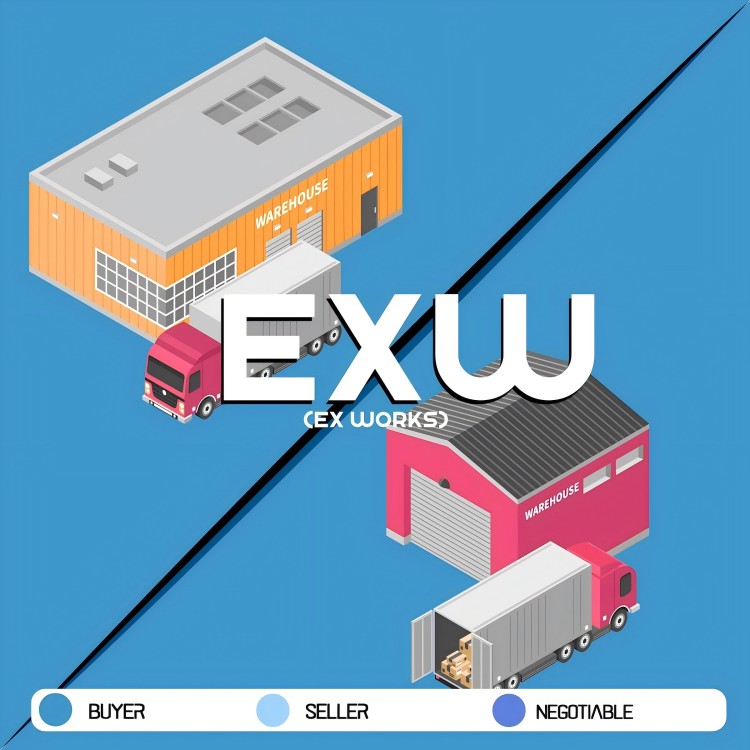
V. EXW in Practice
How to Execute an EX Works Transaction?
Executing an EX Works transaction involves several steps to ensure both parties understand their responsibilities and the goods are transferred smoothly.
- Agree on Terms: Both the buyer and seller must agree on the EX Works terms and conditions, including the exact location where the goods will be made available.
- Prepare Goods: The seller prepares the goods according to the agreed specifications and packaging requirements.
- Notify Buyer: The seller notifies the buyer when the goods are ready for pickup at the agreed location.
- Arrange Transportation: The buyer arranges for the transportation of the goods from the seller’s premises to the final destination. This includes selecting carriers and handling logistics.
- Load and Transport: The buyer, or their designated carrier, picks up the goods from the seller’s location. The buyer is responsible for loading the goods onto the transport vehicle.
- Export and Import Clearance: The buyer handles all export and import customs clearance, including paying any duties and taxes.
- Transport to Final Destination: The goods are transported to the final destination as arranged by the buyer.
What Documentation is Required for EX Works?
Documentation is crucial in EX Works transactions to ensure a smooth transfer and compliance with legal requirements.
- Commercial Invoice: Provided by the seller, detailing the goods, quantity, and price.
- Packing List: Details the packaging of the goods, including dimensions and weight, to assist with transportation and customs.
- Export Documentation: While the seller assists, the buyer is responsible for obtaining the necessary export documents, such as export licenses or permits.
- Import Documentation: The buyer must prepare and submit all required import documents to the customs authorities at the destination.
- Insurance Documentation: If the buyer opts for insurance, relevant documents must be prepared and provided to the insurer.
Tips for Accurate and Timely Documentation:
- Ensure all documents are accurately filled out with correct and consistent information.
- Prepare and review documents well in advance to avoid delays.
- Keep copies of all documents for records and future reference.
VI. How Does EXW Compare to Other Incoterms?
What Are the Key Differences Between EXW and FCA (Free Carrier)?
- EXW: Seller’s responsibility ends when goods are made available at their premises. Buyer handles all transportation and export duties.
- FCA: Seller is responsible for delivering goods to a carrier or another agreed location. The seller handles export clearance.
How Does EXW Differ from FOB (Free on Board)?
- EXW: Buyer takes responsibility at the seller’s premises.
- FOB: Seller is responsible until goods are loaded onto the shipping vessel. Risk transfers to the buyer once goods are on board.
How Does EXW Differ from CIF (Cost, Insurance, and Freight)?
- EXW: Buyer handles all costs and risks from the seller’s premises.
- CIF: Seller covers costs, insurance, and freight to the port of destination. Risk transfers to the buyer once goods are on the vessel.
When Should You Choose EXW Over Other Incoterms?
Choose EXW if:
- You want full control over the logistics and transportation process.
- You can negotiate better rates with your own logistics providers.
- You can handle transportation, export, and import processes effectively.
Relative Articles:
VII. Tips for Using EX Works Effectively
How to Negotiate EX Works Terms?
- Clearly Define Responsibilities: Ensure both parties understand their obligations under EX Works terms.
- Agree on Pickup Location: Specify the exact location where the goods will be made available.
- Determine Documentation Requirements: Discuss and agree on who will handle which documents to avoid confusion.
How to Manage Risks in EX Works Transactions?
- Arrange Comprehensive Insurance: Since the buyer assumes all risks from the seller’s premises, obtaining robust insurance coverage is crucial.
- Understand Customs Requirements: Familiarize yourself with both export and import customs procedures to avoid delays and additional costs.
- Choose Reliable Carriers: Select trustworthy and experienced logistics providers to ensure safe and timely delivery of goods.
VIII. What Best Practices Should Buyers Follow Under EXW?
How Can Buyers Conduct Thorough Due Diligence?
Thorough due diligence is crucial for buyers operating under EX Works (EXW) terms. Buyers should start by evaluating the seller’s credibility and reliability. This includes checking the seller’s history, financial stability, and compliance with industry standards. Site visits or third-party inspections can provide insight into the seller’s operations and product quality.
Additionally, buyers should verify that the seller’s premises are suitable for pickup and that the goods are correctly packaged and labeled according to international shipping standards.
What steps should be taken to arrange reliable transportation?
- Partner with reputable freight forwarders or logistics providers.
- Obtain multiple quotes to ensure competitive pricing.
- Plan for potential delays or disruptions in the supply chain.
- Consider consolidating shipments to optimize costs.
How Can Customs Clearance Be Managed Effectively?
Effective customs clearance requires a thorough understanding of both export and import regulations. Buyers should compile all necessary documentation, such as commercial invoices, packing lists, and any required permits or licenses, well in advance of shipment.
Engaging a customs broker can streamline the clearance process and help navigate complex regulatory environments.
It’s also important for buyers to stay updated on changes in customs regulations and ensure compliance to avoid delays and additional costs.
Establishing a robust documentation process and maintaining open communication with customs authorities can significantly enhance the efficiency of customs clearance.
VX. How Is EXW Applied in Different Industries?
What Is the Relevance of EXW in Manufacturing?
In the manufacturing industry, EXW is often used when buyers prefer to manage their logistics. It allows manufacturers to focus on production without being involved in the transportation process.
This term is particularly relevant for manufacturers exporting large machinery or industrial equipment, where buyers may need to arrange specialized transportation.
What Role Does EXW Play in the Trade of Raw Materials?
EXW is commonly used in the trade of raw materials such as minerals, metals, and agricultural products. Buyers in this sector often have specific transportation and processing requirements that are easier to manage if they control the logistics from the point of origin. EXW allows buyers to ensure that raw materials are transported under conditions that meet their quality and handling standards.
X. What Are Common Misconceptions About EXW?
What Misunderstandings Exist Regarding the Seller’s Role in Loading Goods?
A common misconception is that the seller is responsible for loading the goods onto the transport vehicle. Under EXW terms, the seller’s responsibility ends once the goods are made available at their premises. It is the buyer’s responsibility to handle loading and any associated costs or risks.
What Responsibilities Does the Seller Have for Export Clearance?
Another misunderstanding is that the seller must handle export clearance. In reality, under EXW terms, the buyer is responsible for all aspects of export clearance, including documentation and duties. The seller may assist with obtaining necessary information or documents, but the primary responsibility lies with the buyer.
Is EXW Applicable in Domestic Transactions?
While EXW is primarily used for international trade, it can also be applied in domestic transactions. However, its use domestically is less common and typically depends on specific agreements between the buyer and seller. In domestic scenarios, buyers and sellers might prefer other terms that better address local logistics and regulatory requirements.
XI. Conclusion
EX Works (EXW) is a valuable Incoterm for B2B transactions, particularly for buyers who want greater control over their logistics and shipping processes. By understanding the responsibilities involved, conducting thorough due diligence, and managing transportation and customs clearance effectively, buyers can leverage EXW to optimize their supply chain operations.
Ready to simplify your international trade processes? We can help you navigate the complexities and ensure a smooth process from start to finish. Contact us today to learn more!

